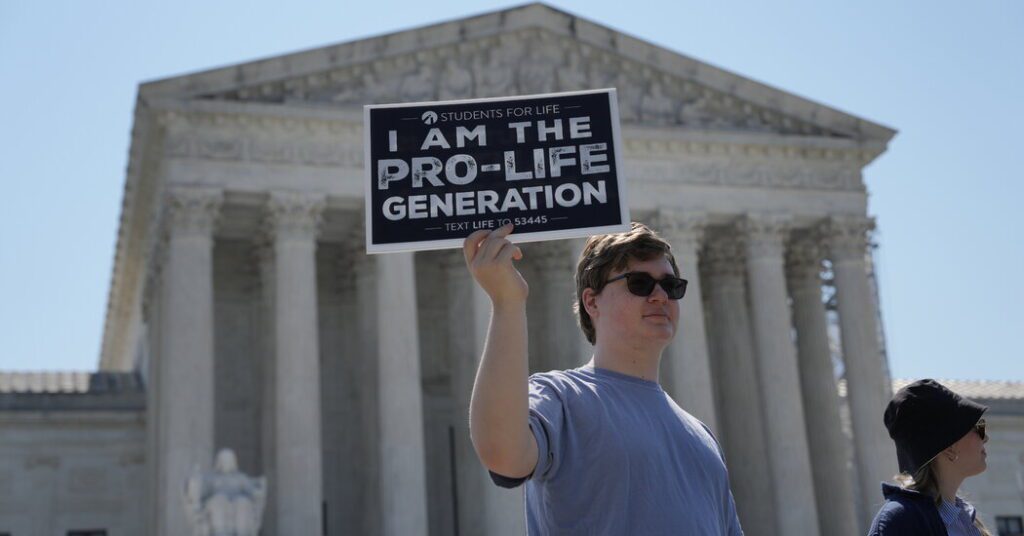The Supreme Court's decision Thursday to reject one attempt to restrict access to abortion pills did not preclude other plaintiffs from continuing to challenge the drug used to perform most abortions in the country.
The Supreme Court case was dismissed after the justices unanimously ruled that the plaintiffs, a group of anti-abortion doctors and organizations, did not have standing to sue because they had failed to prove they had been harmed by the availability of the abortion pill.
But the case is likely to be reopened by other plaintiffs: three Republican-led states that successfully petitioned to join the case at the lower court level several months ago.
Late last year, the three states of Missouri, Idaho and Kansas were granted plaintiff status by Judge Matthew J. Kacsmarik of the U.S. District Court for the Northern District of Texas, who was appointed by President Donald J. Trump to hear the original lawsuit and is an open opponent of abortion access. Once the Supreme Court accepted the case, the justices denied the three states' request to intervene as plaintiffs at that level.
But anti-abortion groups say the three states are likely to return to district court and resume efforts to restrict access to the drug, mifepristone.
“The case will now return to district court, where anti-abortion states Idaho, Kansas and Missouri will seek to challenge it based on the harms suffered by women in their states,” anti-abortion group SBA Pro-Life America said in a statement Thursday.
The legal issue would be different for states than for anti-abortion doctors and medical groups who say they are harmed by sometimes having to treat women who show up in emergency rooms after taking the abortion pill. States would argue they are harmed because federal regulations allowing access to mifepristone ignore state regulations on abortion access.
“We expect the litigation will continue as these states make different standing claims than those asserted by our doctors,” Erin Hawley, a lawyer who represented anti-abortion plaintiffs in the Supreme Court case, said Thursday.
The decision will also spur efforts to regulate abortion pills in other ways. A recent example is Louisiana's classification of abortion pills as Schedule IV drugs, a category of controlled substances that have the potential for abuse and addiction, such as Ambien, Valium, and Xanax. Because the classification runs counter to medical evidence and because Louisiana already bans most abortions, abortion rights activists and legal scholars say the measure may not actually stop many abortions among Louisiana women.
But on a political level, Louisiana's new law supports critics' claims that the abortion pill is dangerous, and abortion rights advocates say such laws could create confusion for patients about what access they have and discourage them from seeking abortions.
On the abortion rights front, the Supreme Court's decision is likely to bolster efforts to provide access to abortion to women in states that ban or restrict it, including through telehealth abortion services, which continue to grow and contribute to the medication-based approach to nearly two-thirds of abortions in the United States.
It would also likely expand the use of shield laws, which allow doctors and abortion providers in states where abortion is legal to prescribe and mail the pill to women in states with bans or restrictions without them having to travel outside the state. Seven states have such laws on the books.

